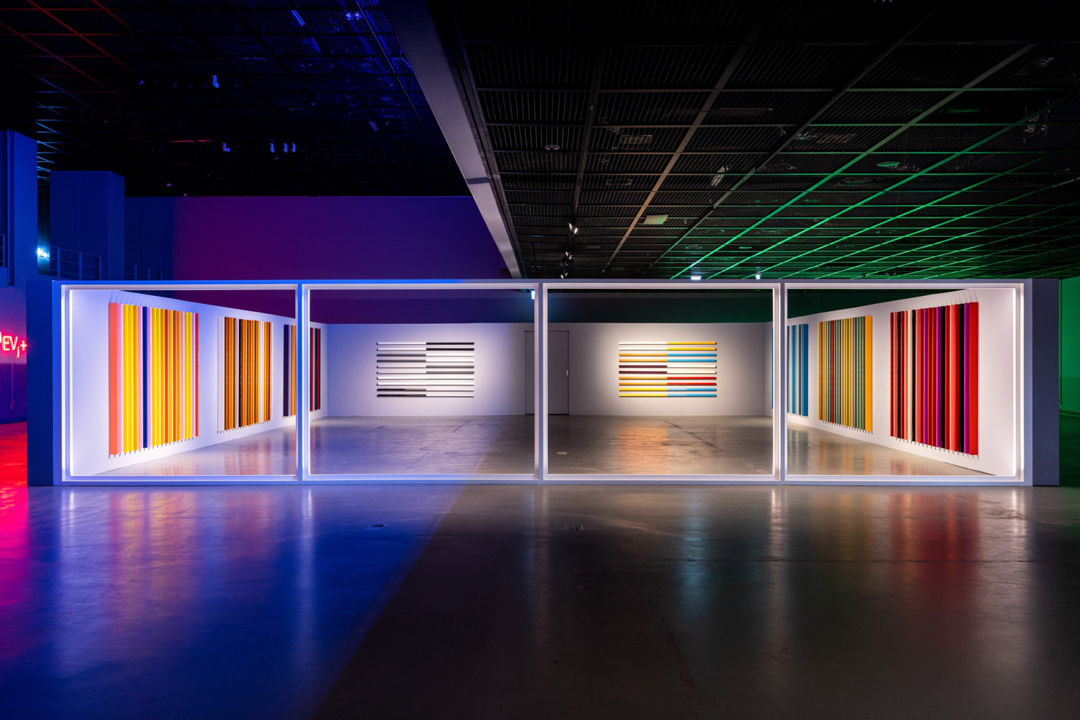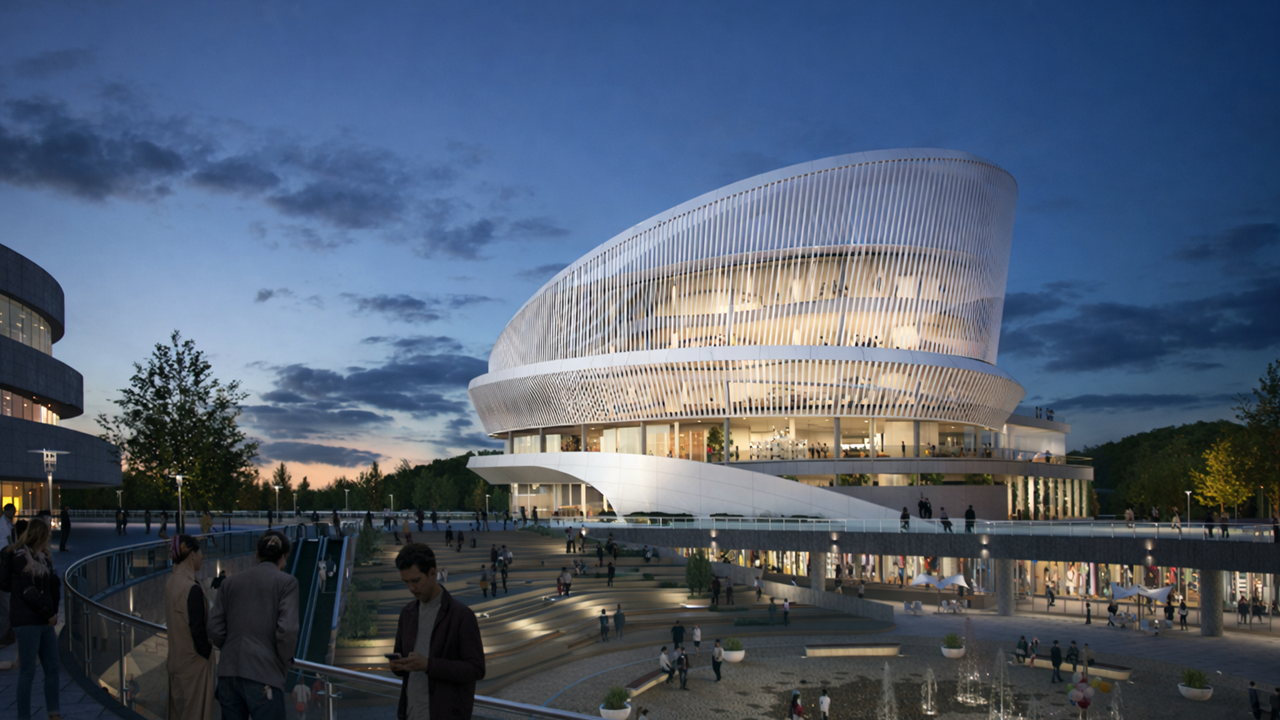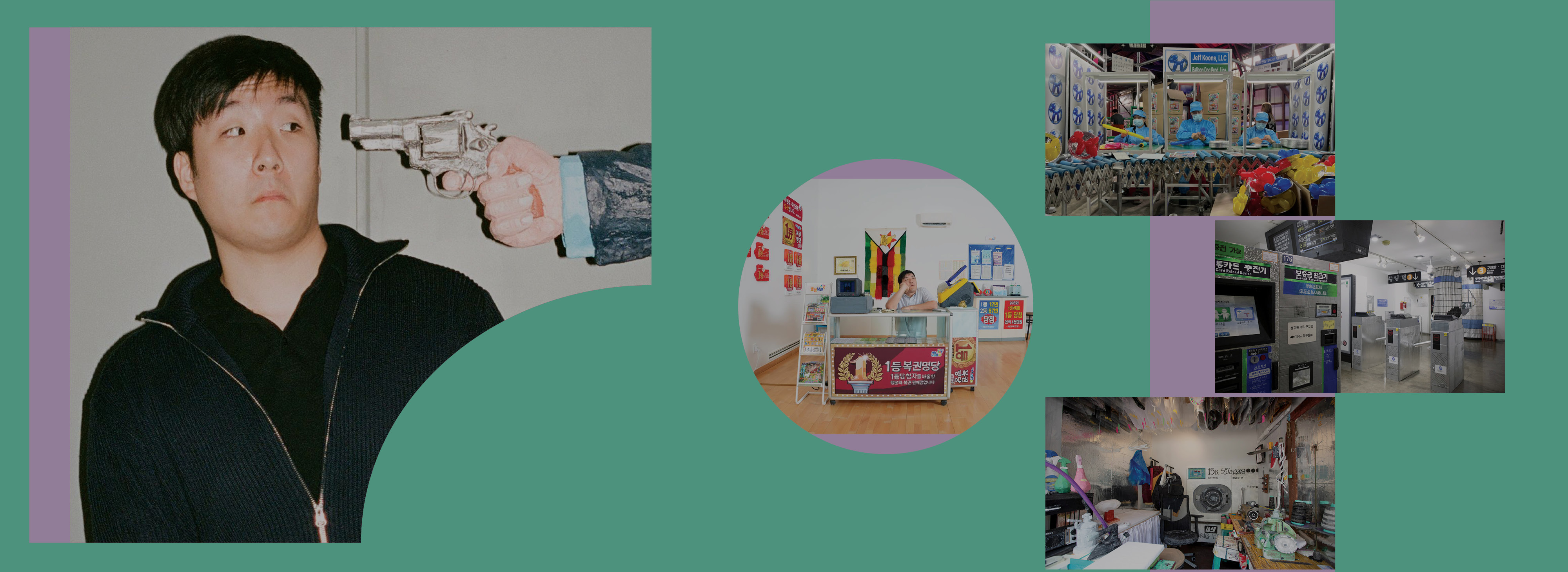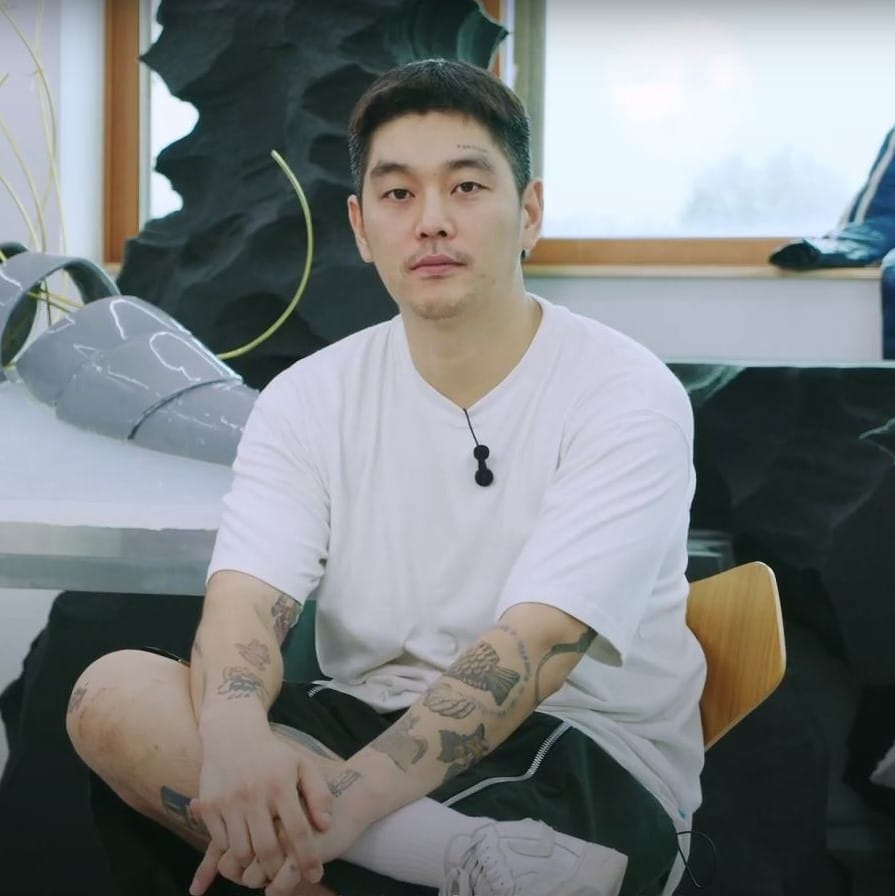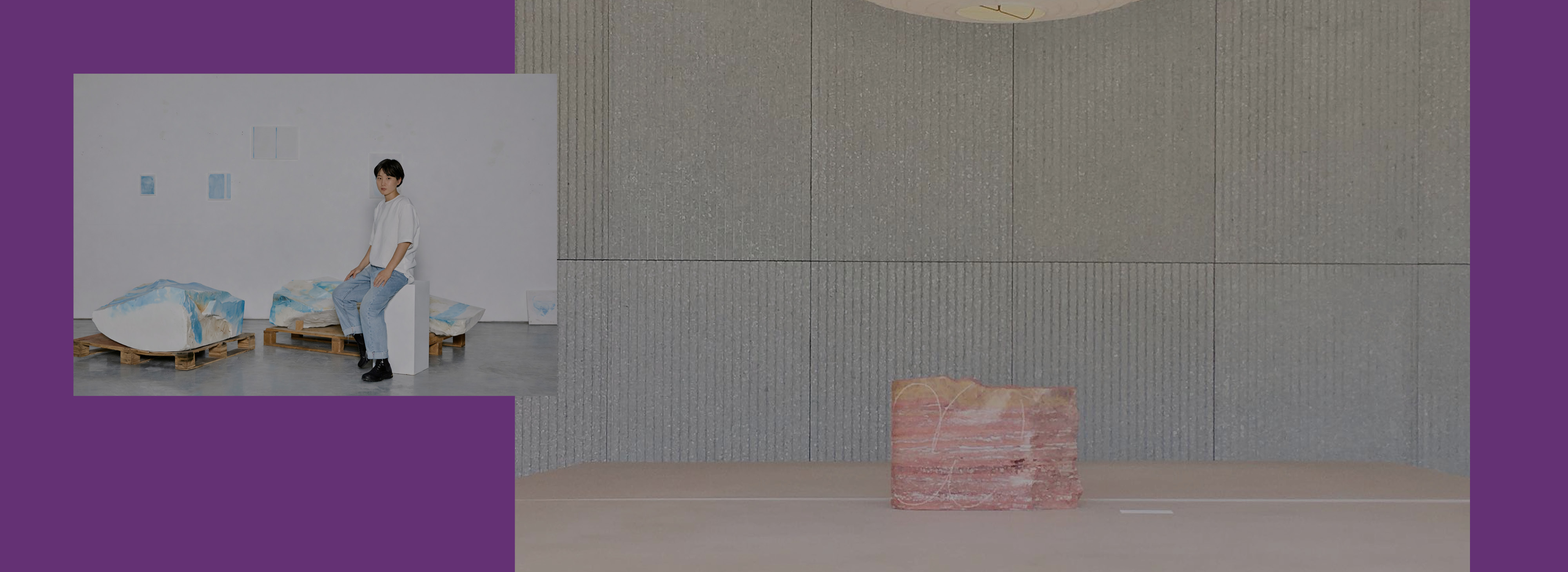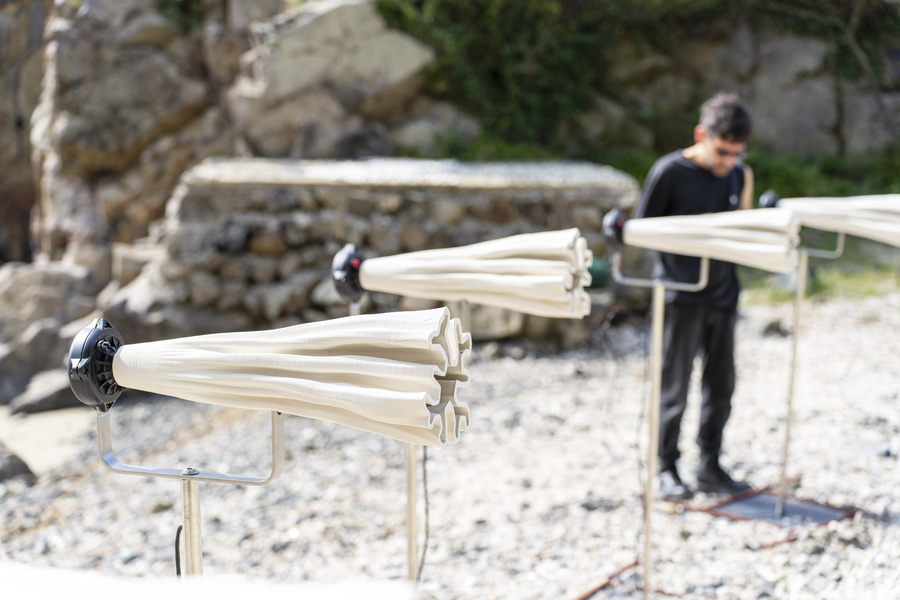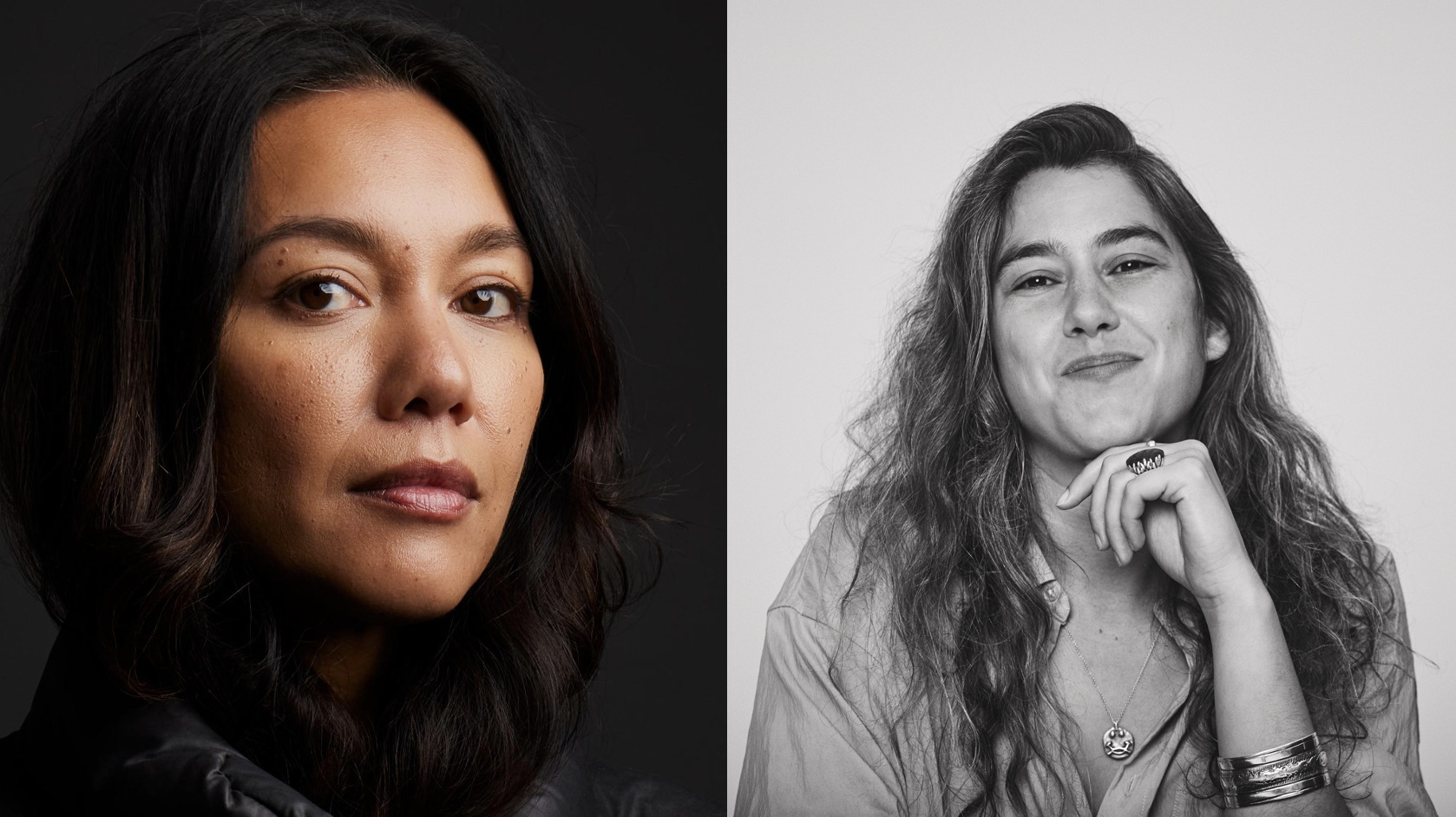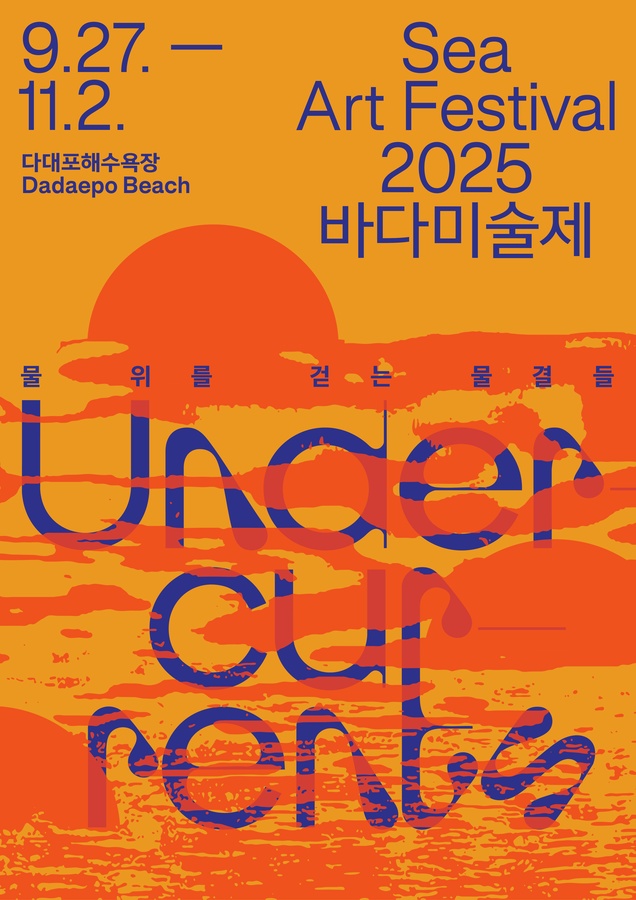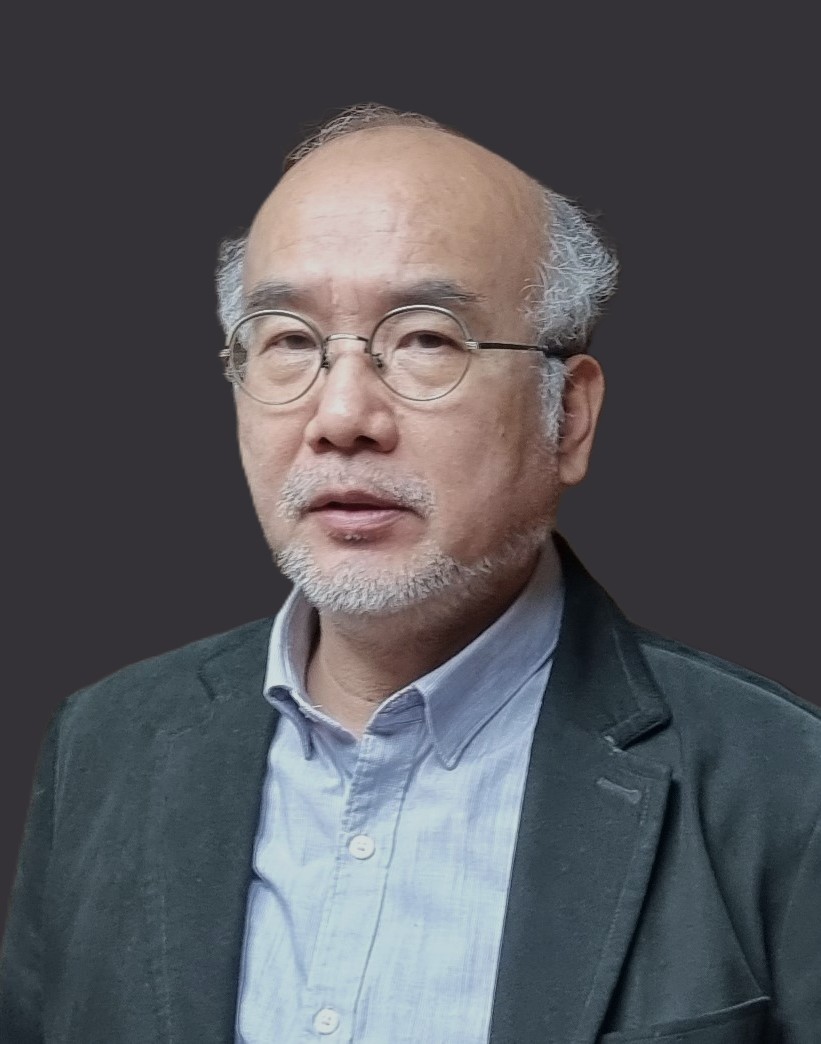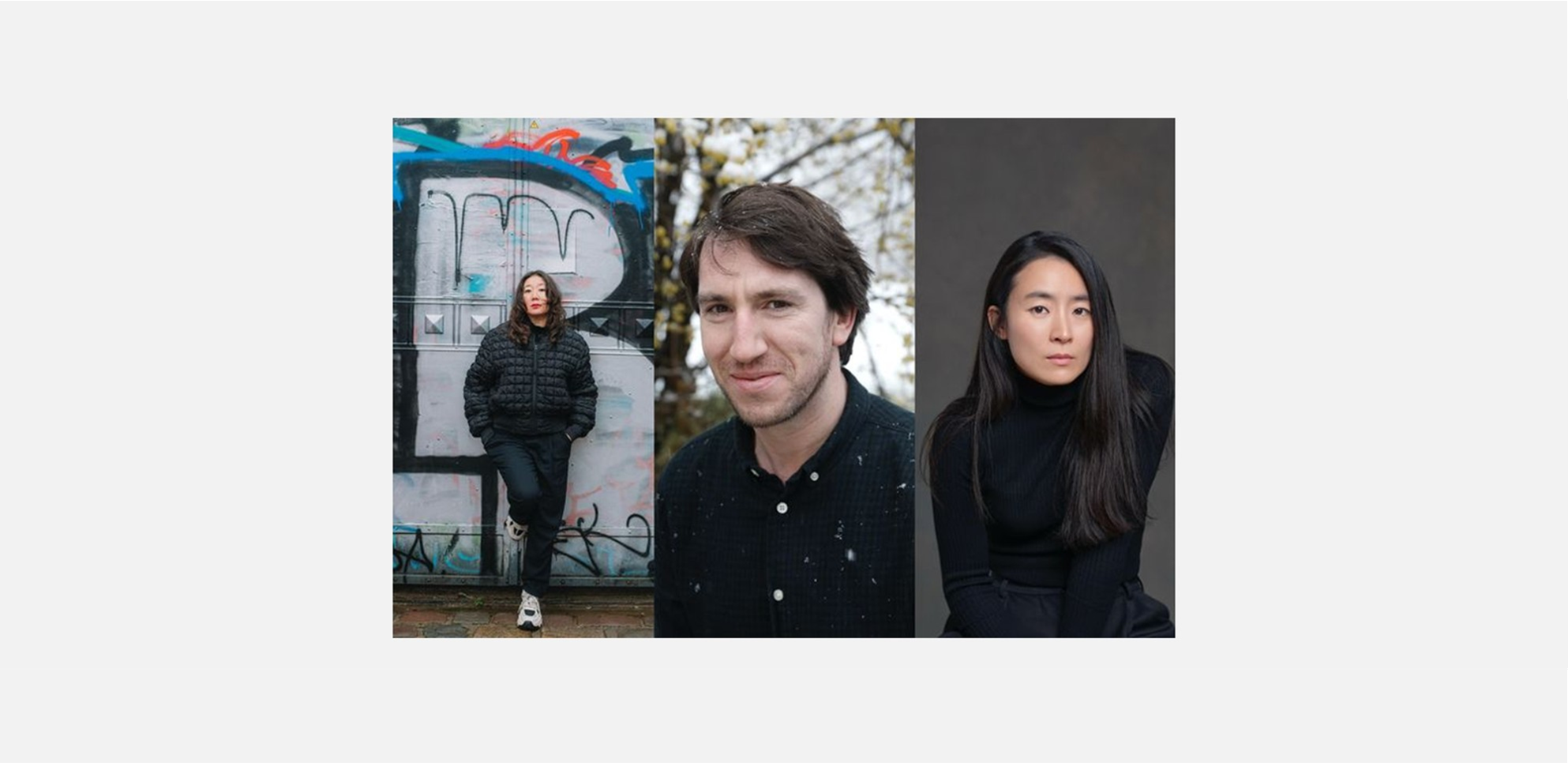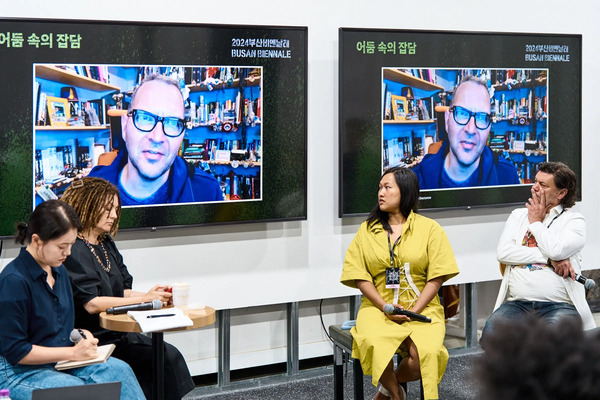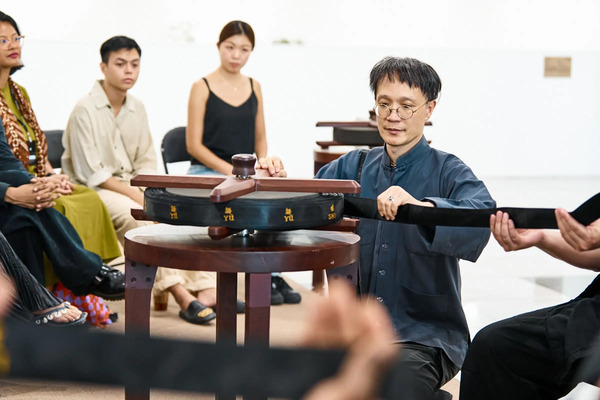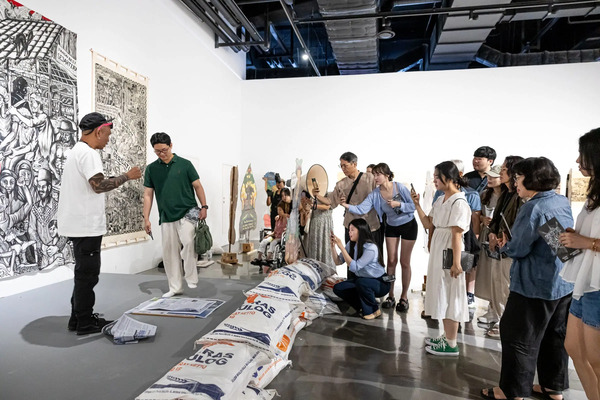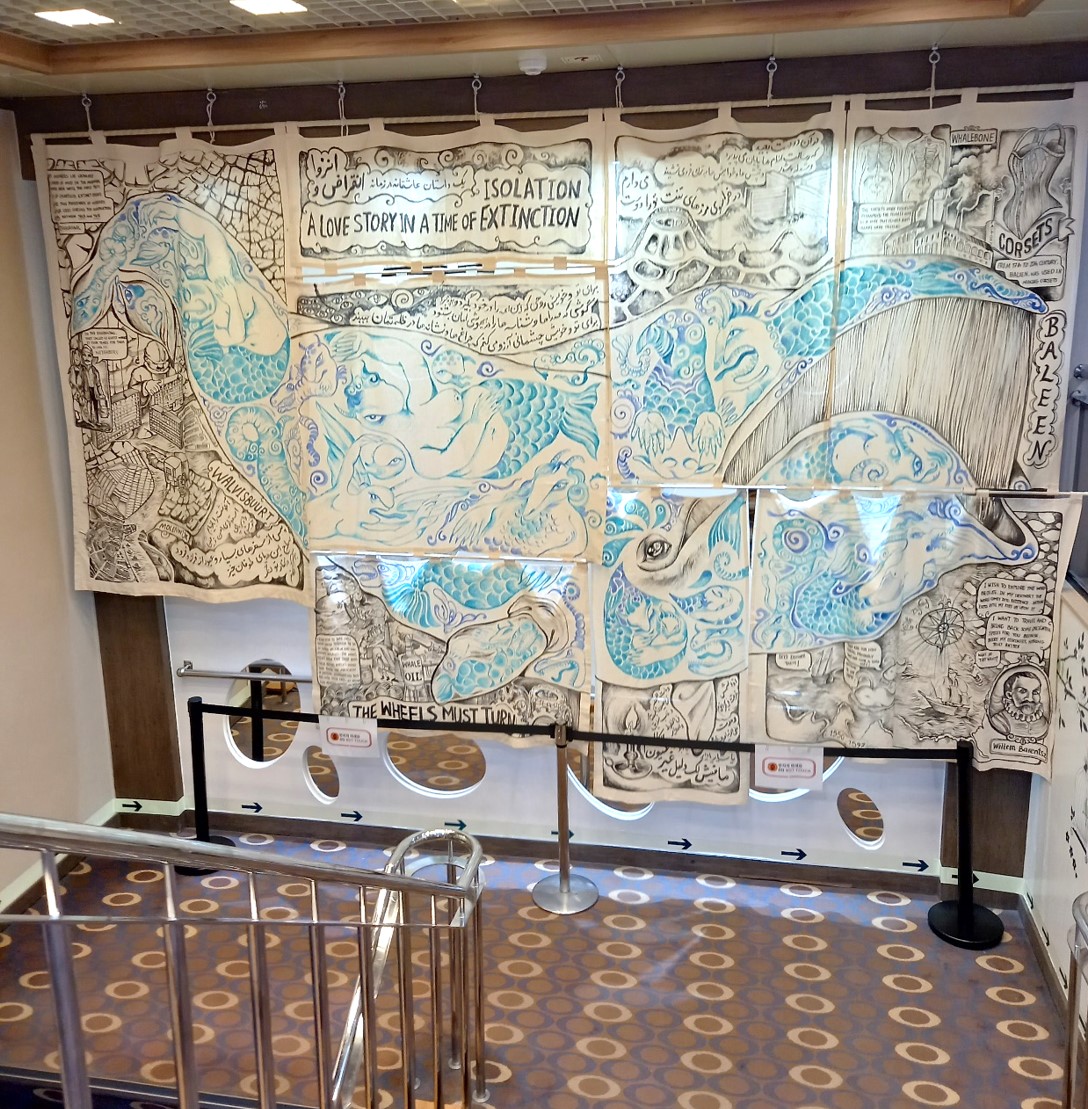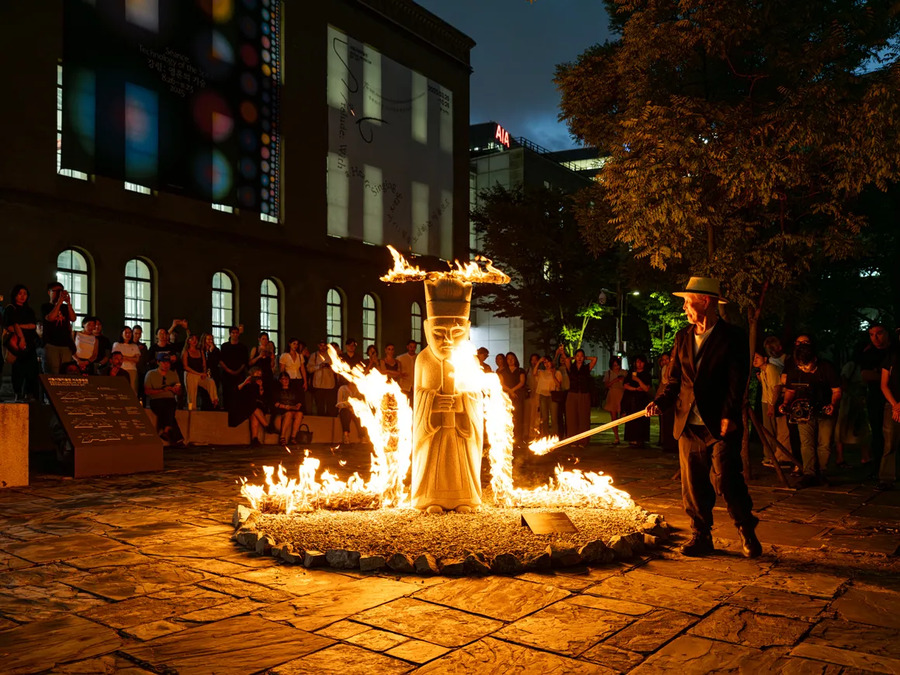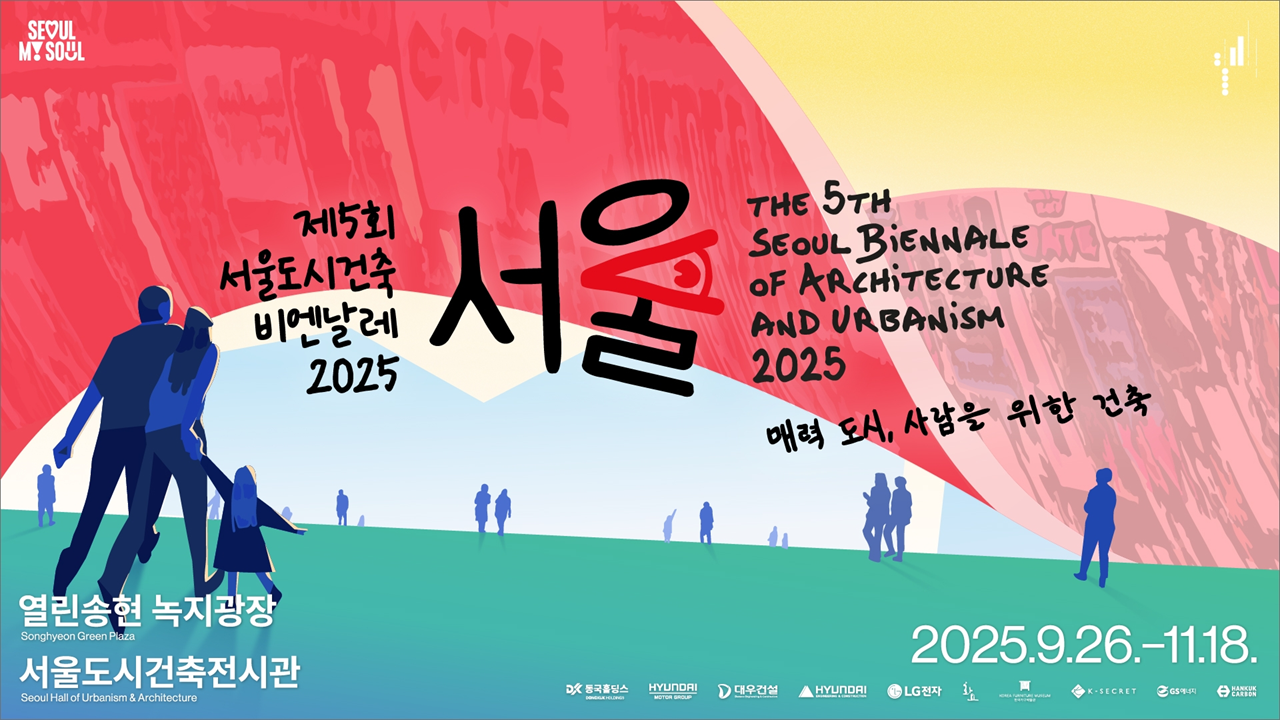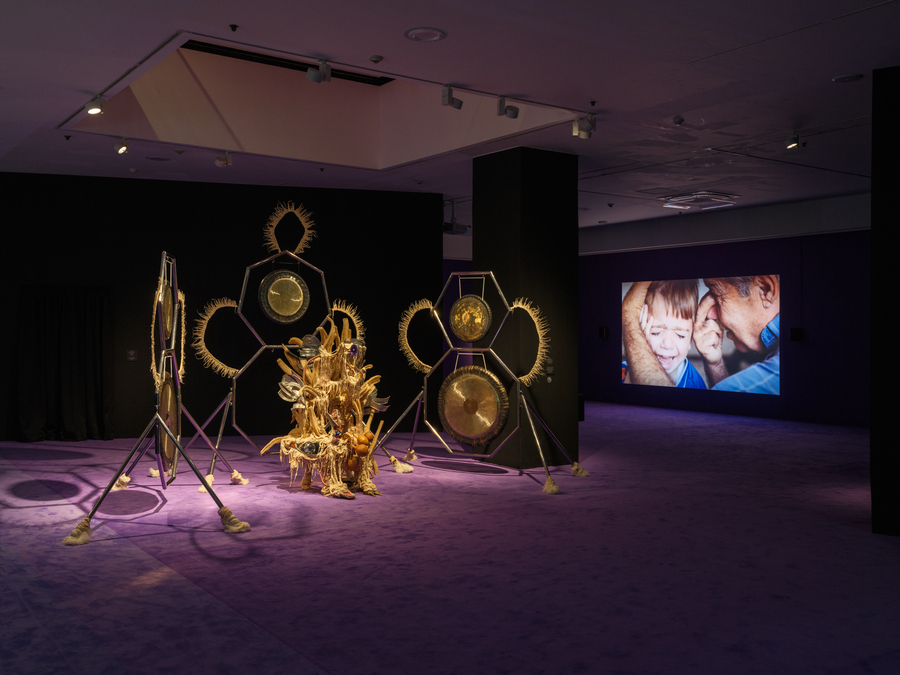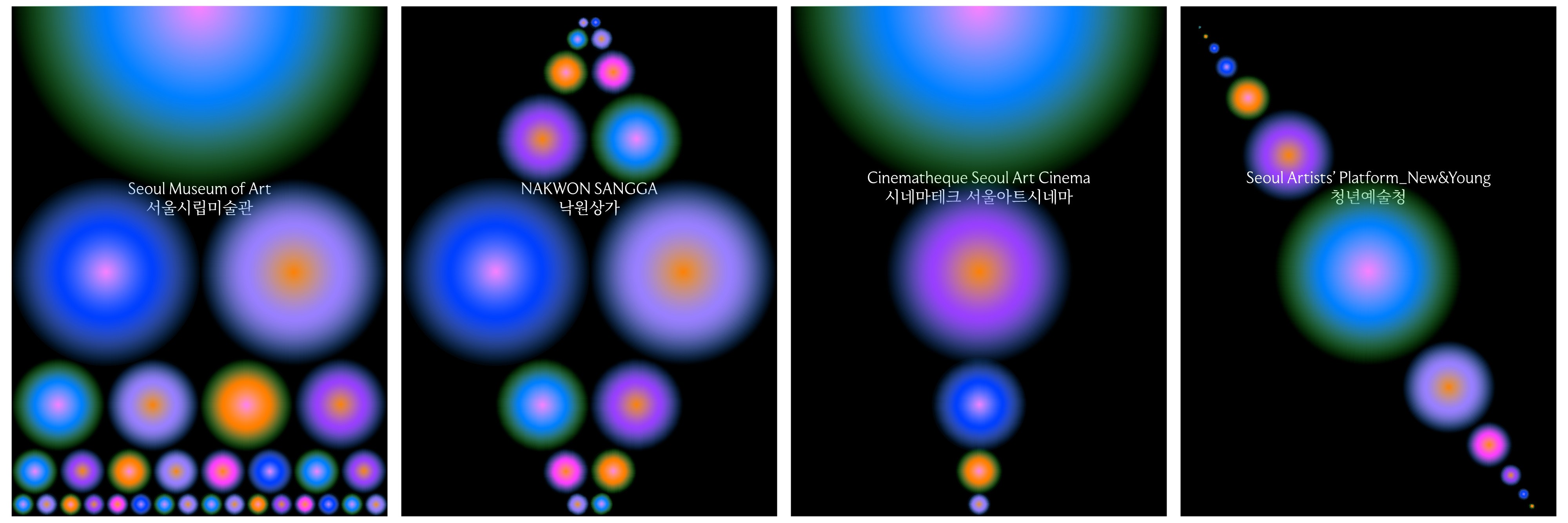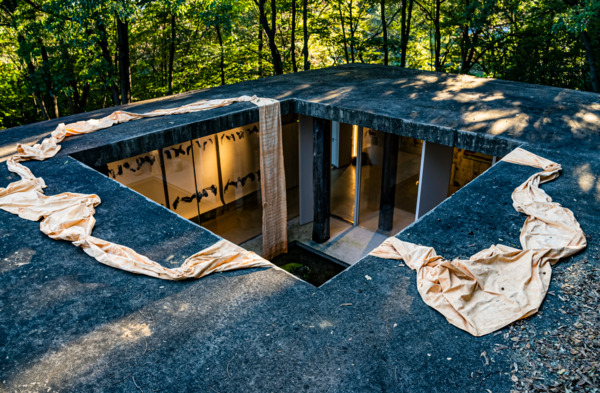Philippe Pirotte and Vera Mey, who are active exhibition curators in Europe and Asia, have been selected to curate the 2024 Busan Biennale.
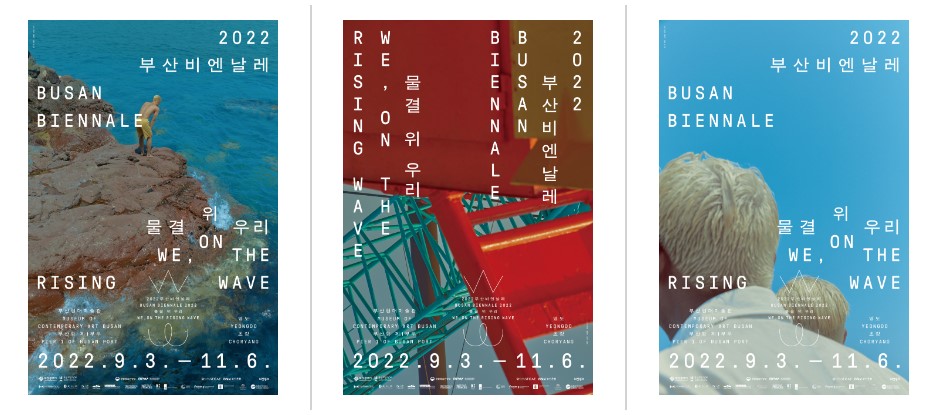
2022 Busan Biennale poster images ⓒ Kim Hee Joon @CO-OP. Courtesy of the Busan Biennale 2022.
The 2022 Busan Biennale We, on the Rising Wave, led by artistic director Haeju Kim, received favorable reviews and garnered attention from both domestic and international media.
International media outlets such as Frieze, Artnet News, Art Forum, and ART iT extolled the 2022 Busan Biennale exhibition for revealing the history and identity of the Busan region through the theme of the sea and challenging the authoritarian viewpoint while dealing in depth with perspectives that are important today, such as the environment, history, and human rights.
Kim not only brought a transnational perspective to the history of Korea and Busan City but also organized the exhibition in a very cohesive way, covering a wide range of topics ranging from migration, women workers, and urban ecology to technological change and locality, all of which have been relatively underrepresented in the Korean art scene.
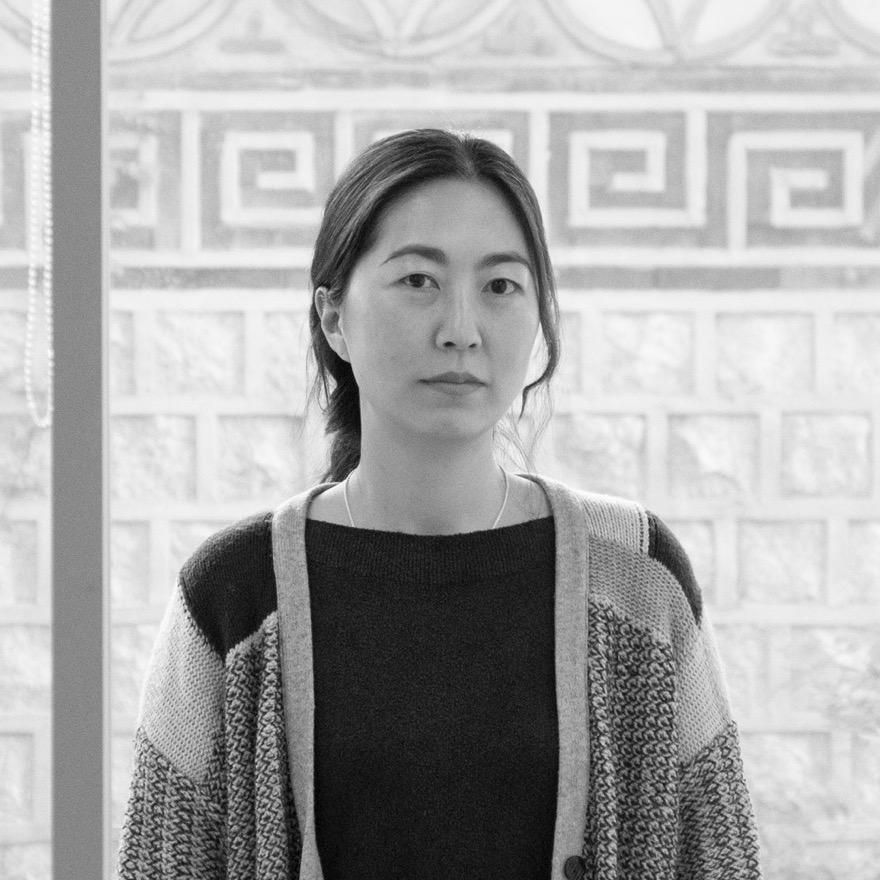
Haeju Kim, Artistic director of the Busan Biennale 2022. Courtesy of the Busan Biennale Organizing Committee.
As we enter the second half of 2023, the Busan Biennale Organizing Committee is gearing up for next year’s 2024 Busan Biennale. In February, the committee held an international competition to select an artistic director for next year, and a proposal that was in line with the direction and core values of the biennale was selected in May. Next year, the Busan Biennale will include a Eurasian perspective in its exhibition.
Philippe Pirotte and Vera Mey, who are active curators in Europe and Asia, have been selected to curate the 2024 Busan Biennale.
Philippe Pirotte is a Belgian art historian, critic, and curator. He is a professor of art history at the Staedelschule in Frankfurt, Germany, a collaborative curator at the Gropius-Bau in Berlin, and a senior curator at the Museum and Pacific Film Archive at the University of California Art Museum in Berkeley, USA.
Pirotte showcased his curatorial abilities when he served as the exhibition director for the 2016 Montreal Biennale in Canada. The exhibition Le Grand Balcon borrowed the concept of the balcony as a device of desire and theatrical space. Through this exhibition, Pirotte gained recognition and was ranked 88th in the “2016 Power 100” list by ArtReview, an international art media outlet.
In Asia, Pirotte was co-curator of the Jakarta Biennale in Indonesia in 2017 and has organized exhibitions in major spaces in Singapore and the Netherlands. He previously worked with the Busan Biennale as a curatorial advisor in 2022.
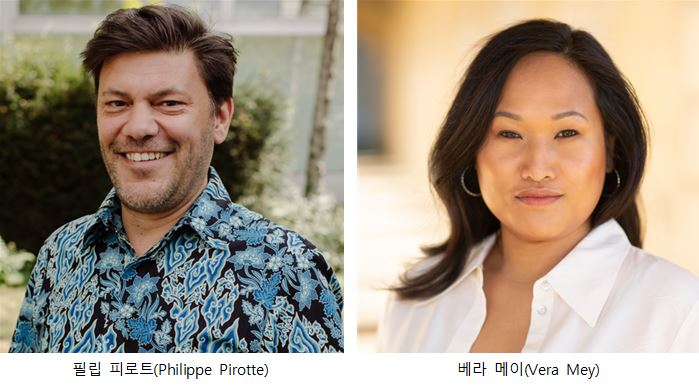
Yoo Youngkuk, Work, 1961 ©Yoo Youngkuk Art Foundation
New-Zealand-born Vera Mey is a scholar and curator. In addition to her home country, she has worked extensively on artistic traditions across East and Southeast Asia, including in Singapore, Japan, and Cambodia. She is currently a PhD candidate studying the History of Art & Archaeology at SOAS University of London, UK, and a curator at Te Tuhi City Public Gallery in Auckland, New Zealand.
Mey was a member of the founding team and a curator for the residency program at the NTU Centre for Contemporary Art Singapore from 2014 to 2016. In 2017, she also participated in the curatorial team for “SUNSHOWER: Contemporary Art from Southeast Asia 1980s to Now,” which was held at the Mori Art Museum and the Tokyo National Museum of Modern Art in Tokyo, Japan, in commemoration of the 50th anniversary of ASEAN.
The Busan Biennale aims to create a unique biennale through the local context of Busan, and its core values are self-generation, youth, and experimentation. Regarding the proposal for the biennale by Philippe Pitt and Vera Mey, the organizers said, “It fully captures the characteristics of Busan by taking certain cultural and spiritual ways of life as the motif of the exhibition.”
While the 2022 Busan Biennale made a difference in its status by organizing an exhibition that captured the local features of Korea and Busan, it now seeks a transcendental perspective that people around the world can relate to. We hope that the 2024 Biennale will succeed in presenting such a perspective.



